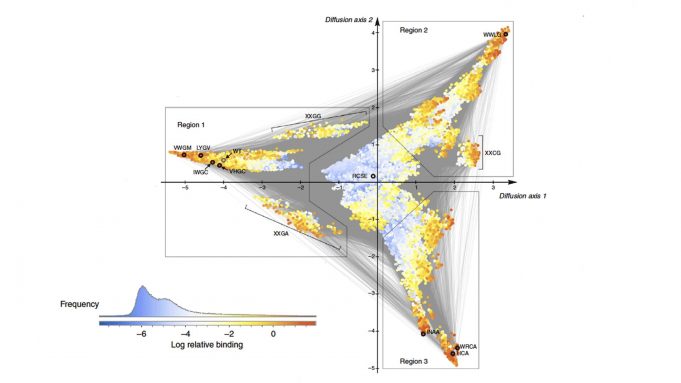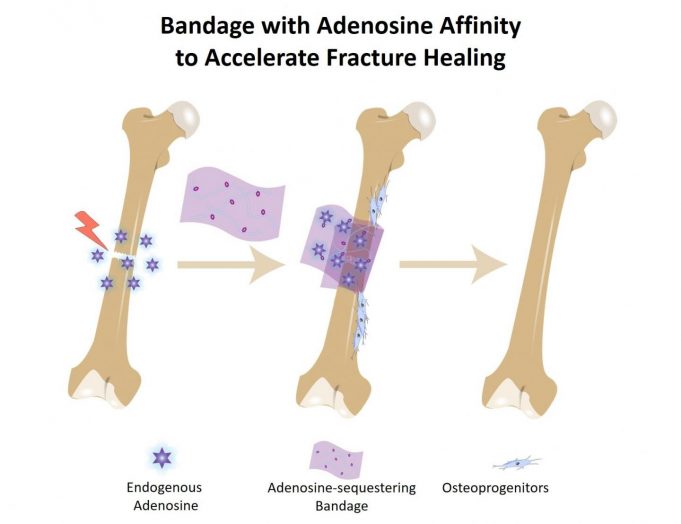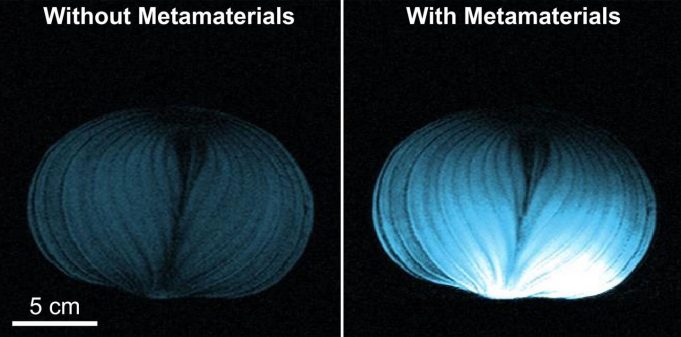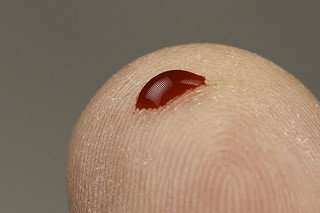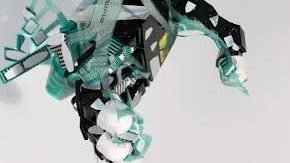Quantitative biologists David McCandlish and Juannan Zhou at Cold Spring Harbor Laboratory have developed an algorithm with predictive power, giving scientists the ability to see how specific genetic mutations can combine to make critical proteins change over the course...
Some patients with breast cancer receive chemotherapy before the tumor is removed with surgery. This approach, called neoadjuvant therapy, helps to reduce the size of the tumor to facilitate breast-conserving surgery, and can even eradicate the tumor, leaving few...
Researchers at Duke University have engineered a bandage that captures and holds a pro-healing molecule at the site of a bone break to accelerate and improve the natural healing process.
In a proof-of-principle study with mice, the bandage helped to...
Scientists at ETH Zurich and the South African company Strait Access Technologies are using 3-D printing to produce custom-made artificial heart valves from silicone. This could help meet an aging population's growing demand for replacement heart valves.
The human heart has four...
Scientists at Washington University School of Medicine in St. Louis have developed a new imaging agent that could let doctors identify not only multiple types of tumors but the surrounding normal cells that the cancer takes over and uses...
Boston University researchers have developed a new, "intelligent" metamaterial—which costs less than ten bucks to build—that could revolutionize magnetic resonance imaging (MRI), making the entire MRI process faster, safer, and more accessible to patients around the world. The technology,...
In the course of every single cell division, the genetic information on the chromosomes must be distributed equally between the newly developing daughter cells. The enzyme separase plays a decisive role in this process. Susanne Hellmuth and Olaf Stemmann...
A more comfortable and reliable blood-sugar monitoring system is being designed by researchers in Sweden for people with diabetes. After successfully testing a prototype of a microneedle patch on a human subject, the completion of a system for clinical...
Chaos in bodily regulation can optimize our immune system according to a recent discovery made by researchers at the University of Copenhagen's Niels Bohr Institute. The discovery may prove to be of great significance for avoiding serious diseases such...
EPFL scientists are developing new approaches for improved control of robotic hands -- in particular for amputees -- that combines individual finger control and automation for improved grasping and manipulation. This interdisciplinary proof-of-concept between neuroengineering and robotics was successfully...
As the coronavirus outbreak shows, viruses are a constant threat to humanity. Vaccines are regularly developed and deployed against specific viruses, but that process takes a lot of time, doesn't help everyone who needs protection, and still leaves people...





